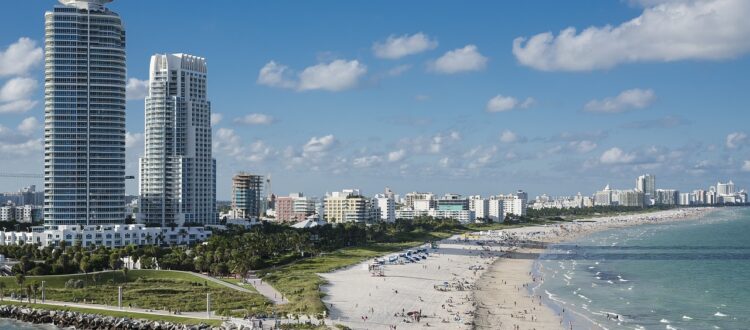Navigating the Waves: The Impact of Tourism on Property Management in Miami
Miami, renowned for its sun-kissed beaches, cultural diversity, and vibrant nightlife, stands as a prime destination for tourists from around the globe. As the city continues to draw visitors year-round, the impact of tourism on property management in Miami becomes a pivotal aspect to explore. In this blog post, we delve into the ways in which the thriving tourism industry influences property management strategies and considerations in this dynamic real estate market.
Tourism’s Influence on Property Demand:
Miami’s allure as a tourist hotspot contributes significantly to the demand for short-term rental properties. Vacationers seek comfortable, convenient, and well-maintained accommodations, making property management a crucial element in meeting these expectations. The cyclical nature of tourism, with peak seasons and events, necessitates a strategic approach to property management to maximize returns for property owners.
- Short-Term Rental Opportunities: The influx of tourists opens up opportunities for property owners to capitalize on short-term rentals. Effective property management involves optimizing listings, setting competitive pricing, and providing top-notch guest experiences to garner positive reviews and repeat business.
- Adaptability in Marketing and Operations: Property managers must be agile in adapting marketing and operational strategies to align with the dynamic nature of tourism. Utilizing online platforms, social media, and partnerships with travel agencies can enhance visibility and attract a steady flow of guests.
Tourism-Driven Property Management Practices:
- Guest Experience Management: In the realm of short-term rentals, creating memorable guest experiences is paramount. Property managers play a pivotal role in ensuring seamless check-ins, cleanliness, and prompt resolution of any issues. Satisfied guests are more likely to leave positive reviews and become repeat visitors.
- Maintenance and Upkeep: The high turnover of short-term rentals requires vigilant maintenance and upkeep. Property managers must implement efficient cleaning schedules, regular maintenance checks, and swift responses to any repairs to keep properties in top condition for incoming guests.
- Regulatory Compliance: The growing popularity of short-term rentals has led to increased regulatory scrutiny. Property managers need to stay informed about local regulations, licensing requirements, and tax obligations related to short-term rentals to ensure compliance and avoid legal issues.
- Dynamic Pricing Strategies: Tourism-driven property management involves implementing dynamic pricing strategies that adjust rates based on demand, seasonality, and local events. This ensures optimal revenue generation and competitiveness in the market.
As Miami continues to thrive as a tourist destination, the impact on property management is profound. Property managers must navigate the waves of the dynamic tourism industry by embracing short-term rental opportunities, prioritizing guest experiences, maintaining properties to high standards, staying compliant with regulations, and implementing strategic pricing. In doing so, property owners and managers can not only meet the demands of the tourism market but also maximize the potential of their investments in this bustling city by the sea.









